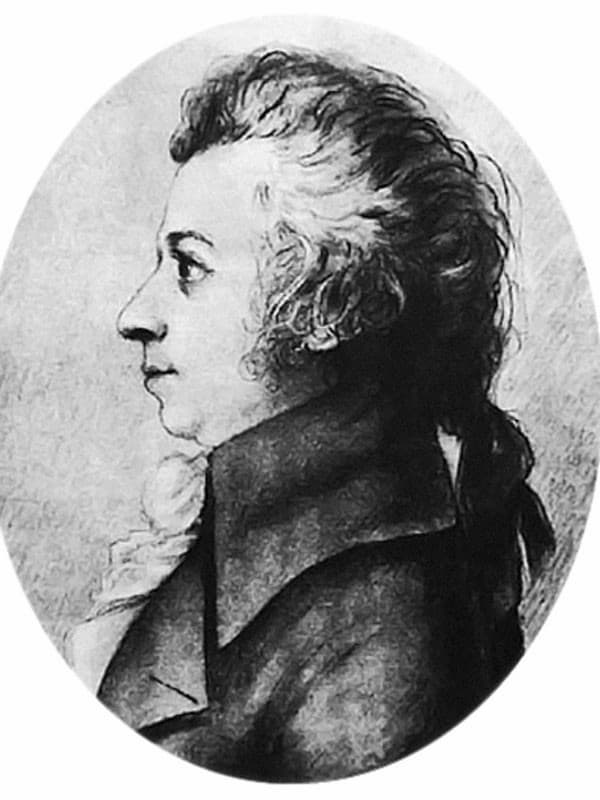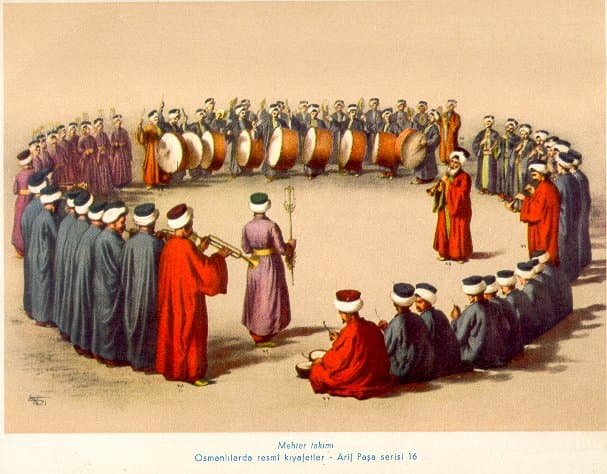The Austro-Turkish (1788-91) gave rise to one of Wolfgang Amadeus Mozart’s most obscure works. On 11 August 1788, one day Mozart recorded the completion of his 41st symphony, he entered the song “Beim Auszug in das Felde,” (Going to War) into his personal catalog of works. Mozart set 18 stanzas of verse by an unknown poet, and it was published in a periodical entitled “Weekly for children, providing a pleasant and instructive pastime.”

Wolfgang Amadeus Mozart in 1789
Joseph called forth his armies;
Faithful to the emperor’s lofty words,
They hurried to him as if on wings,
Thirsting for victory and honor.
Thus Joseph, like a god on earth,
Extended toleration to the Turks and the Jews
Protecting them from oppression and harm
And seeking peace among all peoples.
And peace was granted him by all the people of the world,
Save one single nation that resisted,
That imagines itself a chosen people
And knows no outsider for a brother.
Every brother who values justice and humanity
Will stand by us,
For it is to help the cause of humanity
That our swords are sharpened.
So, bold warriors, fight with spirit
For your crowns of honor!
God Himself will reward your heroes’ blood
At his throne.

Ottoman Military Band
After Mozart’s death, the work disappeared and only reentered awareness in the early 20th century. It has been suggested that it was an easy composition to forget because nobody really wanted to imagine Mozart participating in the creation of military propaganda. In fact, an English-language edition substituted a poem entitled “The Maiden and the Faun.” A recent recording suggests, “The song can be regarded as a commission. It was intended as propaganda for young people to support the unpopular Turkish campaign of Emperor Joseph II in 1788. Whether Mozart himself took the commission and subject matter entirely seriously is open to doubt if the subtle and humorous music is anything to go by.” I’ll let you be the judge of that.
For more of the best in classical music, sign up for our E-Newsletter
